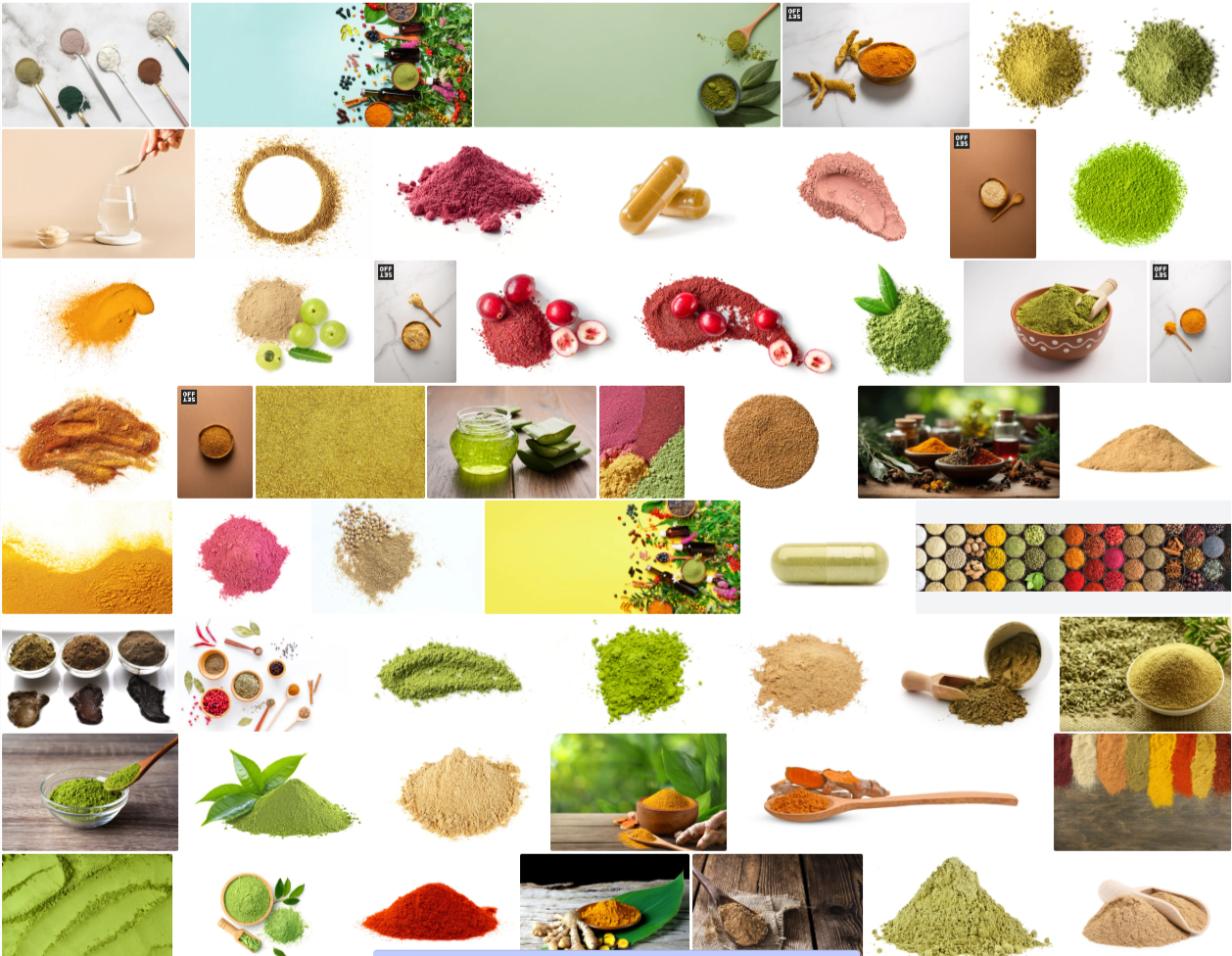Evidence-Based Supplements and Dietary Interventions for Dysthymic Disorder
Dysthymic disorder, now classified as persistent depressive disorder (PDD) in the DSM-5, represents a chronic form of depression characterized by depressed mood that persists for at least two years in adults. While milder than major depressive disorder in symptom intensity, its long-lasting nature can significantly impact quality of life and functional ability. Traditional treatments include psychotherapy and antidepressant medications, but growing evidence suggests nutritional interventions may provide valuable complementary support. This comprehensive review examines the potential role of supplements, dietary modifications, and nutritional strategies in managing dysthymic disorder.
Understanding Dysthymic Disorder and Nutrition’s Potential Role
Dysthymic disorder involves persistent low mood, fatigue, poor concentration, sleep disturbances, and feelings of hopelessness that can last for years. The chronic nature of this condition suggests underlying biological mechanisms that may be influenced by nutritional status. Key physiological factors in dysthymia that intersect with nutrition include:
- Neurotransmitter imbalances: Disruptions in serotonin, dopamine, and norepinephrine systems
- Inflammation: Low-grade chronic inflammation affecting brain function
- Oxidative stress: Free radical damage to brain cells and tissues
- Mitochondrial dysfunction: Impaired cellular energy production
- Gut-brain axis disruption: Alterations in the microbiome affecting mood regulation
These mechanisms provide multiple potential targets for nutritional interventions. While nutrition alone cannot cure dysthymic disorder, evidence suggests specific nutrients and dietary approaches may help modulate these systems and potentially enhance conventional treatment outcomes.
Omega-3 Fatty Acids: Building Brain Health
Among the most researched nutritional interventions for depression are omega-3 fatty acids, particularly eicosapentaenoic acid (EPA) and docosahexaenoic acid (DHA). These essential fats are critical components of neural cell membranes and influence key aspects of brain function relevant to mood regulation.
Mechanisms of Action
Omega-3 fatty acids may benefit those with dysthymic disorder through several pathways:
- Anti-inflammatory effects: Reducing neuroinflammation associated with chronic depression
- Neurotransmitter regulation: Enhancing serotonin and dopamine function
- Cell membrane fluidity: Improving neuronal signaling and receptor function
- Stress hormone modulation: Helping regulate cortisol and stress response systems
Research Evidence
Research supports omega-3 supplementation for depression, with some studies suggesting particular benefit for chronic forms like dysthymia:
A meta-analysis of randomized controlled trials found that omega-3 supplements, particularly those with higher EPA content, demonstrated significant antidepressant effects compared to placebo. Studies suggest that EPA appears more effective than DHA for mood improvement, with some research indicating that formulations with at least 60% EPA provide optimal benefits.
For dysthymic disorder specifically, while fewer studies focus exclusively on this condition, the chronic nature of dysthymia may respond well to the long-term biological effects of omega-3 supplementation. Some research suggests that individuals with chronic, long-standing depression may particularly benefit from the anti-inflammatory effects of omega-3s.
Clinical Applications
For dysthymic disorder, typical recommendations include:
- Dosage: 1-2 grams of combined EPA and DHA daily, with higher EPA formulations (at least 60% EPA)
- Duration: Consistent use for at least 8-12 weeks to assess effectiveness
- Food sources: Fatty fish (salmon, sardines, mackerel), though supplementation is typically needed to reach therapeutic doses
- Quality considerations: Purified supplements tested for heavy metals and oxidation
B Vitamins: Supporting Neurotransmitter Production
B vitamins play crucial roles in brain function, particularly in energy metabolism and neurotransmitter synthesis. Several B vitamins have been studied in the context of depression, including dysthymia:
Folate (Vitamin B9)
Folate is essential for one-carbon metabolism and methylation reactions that affect gene expression and neurotransmitter synthesis. Low folate levels have been consistently associated with depression:
- Research shows that individuals with depression often have lower folate levels than non-depressed controls
- Folate supplementation may enhance the effectiveness of antidepressant medications
- Some studies indicate that a specific form, L-methylfolate, may be particularly effective as it crosses the blood-brain barrier more readily
One study noted that combining folate with vitamin B12 supplementation (800 micrograms of folate and 1 mg of B12 per day) showed promise for improving treatment outcomes in depression. This combination may help reduce levels of homocysteine, a marker linked to depression, while supporting neurotransmitter production.
Vitamin B12 (Cobalamin)
Vitamin B12 deficiency is associated with depressive symptoms, fatigue, and cognitive problems—all common in dysthymic disorder:
- B12 is critical for myelin formation and neurological function
- It works synergistically with folate in methylation processes
- Deficiency is more common in older adults and those with gastrointestinal disorders
Correcting B12 deficiency, when present, may significantly improve mood and energy levels in those with dysthymic symptoms.
Vitamin B6 (Pyridoxine)
Vitamin B6 serves as a cofactor in the synthesis of neurotransmitters including serotonin, dopamine, and GABA:
- It helps convert tryptophan to serotonin, potentially supporting mood regulation
- B6 deficiency can lead to symptoms that overlap with depression
- Some studies suggest B6 supplementation may have mood-enhancing effects
Clinical Applications
For dysthymic disorder, B vitamin recommendations typically include:
- Comprehensive approach: A B-complex supplement providing all essential B vitamins
- Active forms: Supplements using bioactive forms like methylfolate and methylcobalamin
- Dosage: Therapeutic doses often exceed RDA levels, particularly for folate (400-800 mcg) and B12 (1000 mcg)
- Testing: Assessment of B vitamin status, particularly folate and B12 levels, can help target supplementation
Vitamin D: The Sunshine Nutrient for Mood
Vitamin D has received significant attention for its potential role in mood regulation and depression prevention. This fat-soluble vitamin acts more like a hormone in the body, with receptors throughout the brain in regions involved in mood regulation.
Mechanisms and Evidence
Vitamin D may influence dysthymic disorder through several pathways:
- Neurotransmitter synthesis: Involved in producing dopamine and serotonin
- Neuroimmune modulation: Regulating inflammatory processes in the brain
- Neuroprotection: Protecting neurons from damage and supporting neuroplasticity
- Gene expression: Influencing the expression of numerous genes in the brain
Research consistently shows associations between vitamin D deficiency and depression. A meta-analysis found that people with depression have lower vitamin D levels, and people with low vitamin D have a much greater risk of depression. Low vitamin D status appears particularly relevant for chronic depression forms like dysthymia.
Some intervention studies show promising results. Research indicates that vitamin D supplementation may improve symptoms in those with diagnosed vitamin D deficiency who also have depression. One small study focusing on postmenopausal women with low vitamin D found that those who supplemented with 2,000 IU daily for one year performed better on tests of cognition and mood compared to lower doses.
Clinical Applications
For dysthymic disorder, vitamin D recommendations typically include:
- Testing: Measuring 25-hydroxyvitamin D levels to assess deficiency (levels below 30 ng/mL)
- Dosage: Typically 1,000-5,000 IU daily, depending on baseline levels and individual factors
- Duration: Several months may be needed to restore optimal levels
- Monitoring: Periodic retesting to ensure optimal blood levels (typically 30-50 ng/mL)
- Sources: Supplementation is often needed, as food sources are limited and sun exposure varies
SAMe (S-Adenosyl Methionine): Natural Methyl Donor
SAMe is a naturally occurring compound in the body that plays a critical role in methylation reactions and neurotransmitter synthesis. It has been studied extensively for depression:
Mechanisms and Evidence
SAMe may help dysthymic disorder through:
- Methylation support: Enhancing the production and regulation of neurotransmitters
- Membrane fluidity: Improving neuronal cell membrane function
- Antioxidant activity: Supporting cellular defense against oxidative stress
Research on SAMe for depression shows promising results. A review of dozens of studies found that SAMe has demonstrated efficacy similar to conventional antidepressants with a typically faster onset of action and fewer side effects. SAMe may be particularly useful as an adjunct to standard antidepressant therapy, potentially boosting response and remission rates in those who don’t fully respond to medication alone.
Clinical Applications
For dysthymic disorder, SAMe recommendations typically include:
- Dosage: 800-1600 mg daily, often divided into multiple doses
- Form: Butanedisulfonate form appears most stable for oral use
- Timing: Taking with meals may reduce gastrointestinal side effects
- Caution: Should be used carefully in those with bipolar disorder as it may trigger manic episodes
St. John’s Wort: Herbal Antidepressant
St. John’s Wort (Hypericum perforatum) is one of the most extensively studied herbal remedies for depression. While results are mixed, some evidence supports its use particularly for mild to moderate depression, which may include dysthymic disorder:
Mechanisms and Evidence
St. John’s Wort may influence mood through:
- Neurotransmitter reuptake inhibition: Similar to some conventional antidepressants
- Anti-inflammatory effects: Reducing neuroinflammation
- HPA axis regulation: Helping normalize stress response systems
Research shows conflicting results on St. John’s Wort’s effectiveness. However, many trials that included people with various types of depression beyond major depressive disorder (such as dysthymia) found positive results for improved mood with doses ranging from 900 to 1,500 mg daily. Meta-analyses have found efficacy comparable to conventional antidepressants for mild to moderate depression with fewer side effects.
Clinical Applications
For dysthymic disorder, St. John’s Wort recommendations typically include:
- Dosage: 900-1,500 mg daily of standardized extract (0.3% hypericin)
- Duration: Several weeks of consistent use needed to assess effectiveness
- Caution: Significant drug interactions with many medications including other antidepressants, birth control, and blood thinners
- Professional guidance: Should be used under healthcare supervision due to interaction potential
Saffron: Emerging Evidence
Saffron (Crocus sativus) is gaining attention as a promising natural approach for depression. This spice contains several bioactive compounds with potential mood-enhancing properties:
Mechanisms and Evidence
Saffron may benefit mood through:
- Serotonergic effects: Influencing serotonin metabolism and reuptake
- Antioxidant properties: Providing neuroprotection
- Anti-inflammatory action: Reducing neuroinflammation
- BDNF enhancement: Supporting neuroplasticity
Research shows promising results for depression. Multiple randomized controlled trials have found saffron extract to be more effective than placebo and comparable to conventional antidepressants for mild to moderate depression. While not specifically studied for dysthymia, the mechanisms suggest potential benefit for chronic depressive states.
A review of studies found that saffron extract reduced depressive symptoms in those with other health problems and improved the effectiveness of antidepressants when used as an adjunctive treatment.
Clinical Applications
For dysthymic disorder, saffron recommendations typically include:
- Dosage: 30 mg daily of standardized extract
- Quality: Sourcing high-quality saffron is essential, as it’s an expensive spice prone to adulteration
- Adjunctive use: May be combined with conventional treatments for enhanced effect
- Safety: Generally well-tolerated with fewer side effects than many antidepressants
Zinc: Essential Mineral for Brain Health
Zinc is an essential mineral involved in hundreds of enzymatic reactions, including many related to brain function and neurotransmitter regulation. Growing evidence suggests a relationship between zinc deficiency and depression:
Mechanisms and Evidence
Zinc may support mood through:
- Neurotransmitter regulation: Influencing glutamate and GABA systems
- Antioxidant activity: Protecting against oxidative stress
- Neuroplasticity support: Enhancing brain-derived neurotrophic factor (BDNF)
- Anti-inflammatory effects: Reducing neuroinflammation
Research shows associations between low zinc levels and depression. Studies have found that individuals with depression often have lower serum zinc levels than non-depressed controls, and the severity of deficiency may correlate with depression severity.
Intervention studies show that zinc supplementation may reduce depressive symptoms when used alone or with antidepressants. Some research suggests zinc may enhance the effectiveness of antidepressant medications, which could be particularly valuable for the often treatment-resistant nature of dysthymic disorder.
Clinical Applications
For dysthymic disorder, zinc recommendations typically include:
- Dosage: 25-50 mg of elemental zinc daily
- Form: Zinc picolinate, citrate, or glycinate offers better absorption than zinc oxide
- Duration: Several months of consistent use to assess effectiveness
- Monitoring: Long-term high-dose supplementation requires medical supervision
Magnesium: Nature’s Relaxation Mineral
Magnesium is involved in over 300 enzymatic reactions in the body and plays a crucial role in neurotransmitter function, stress response, and energy production. Deficiency is common and has been linked to increased depression risk:
Mechanisms and Evidence
Magnesium may support those with dysthymic disorder by:
- NMDA receptor modulation: Regulating glutamate activity, which affects mood
- GABA enhancement: Supporting the calming neurotransmitter GABA
- Stress hormone regulation: Helping modulate cortisol and stress response
- Energy production: Supporting mitochondrial function and ATP synthesis
Research shows associations between low magnesium status and depression. Population studies have found higher depression rates among those with lower magnesium intake or levels. Some intervention studies suggest magnesium supplementation may reduce depressive symptoms, particularly in those with low magnesium status.
Magnesium may be particularly relevant for dysthymic disorder given the chronic nature of the condition and magnesium’s role in stress resilience and adaptation.
Clinical Applications
For dysthymic disorder, magnesium recommendations typically include:
- Dosage: 200-400 mg of elemental magnesium daily
- Form: Magnesium glycinate, threonate, or taurate forms are preferred for neurological effects
- Timing: Taking with food and dividing doses can reduce potential digestive effects
- Food sources: Green leafy vegetables, nuts, seeds, legumes, and whole grains
N-Acetylcysteine (NAC): Antioxidant Support
N-acetylcysteine (NAC) is an amino acid derivative that serves as a precursor to glutathione, the body’s master antioxidant. Emerging evidence suggests NAC may have antidepressant properties:
Mechanisms and Evidence
NAC may benefit those with dysthymic disorder through:
- Glutathione production: Enhancing cellular defense against oxidative stress
- Glutamate regulation: Modulating glutamatergic transmission implicated in mood disorders
- Anti-inflammatory action: Reducing neuroinflammation
- Dopamine regulation: Potentially normalizing reward pathways
Research shows promising results for depression. A review of five randomized trials published in The Journal of Clinical Psychiatry suggested that NAC was well-tolerated and eased depression symptoms across multiple psychiatric conditions. While not specific to dysthymia, NAC’s mechanisms address several biological factors associated with chronic depression.
Clinical Applications
For dysthymic disorder, NAC recommendations typically include:
- Dosage: 600-2,400 mg daily, often divided into two doses
- Duration: Several months of consistent use to assess effectiveness
- Timing: Taking with food may improve tolerance
- Integration: Often used alongside conventional treatments
Dietary Approaches for Dysthymic Disorder
Beyond specific nutrients, overall dietary patterns significantly influence brain health and mood regulation, with several approaches showing promise for depression:
Mediterranean Diet
The Mediterranean diet, rich in fruits, vegetables, olive oil, nuts, legumes, whole grains, and fish, has shown considerable evidence for depression prevention and management:
- Anti-inflammatory profile: Reduces inflammatory markers associated with depression
- Antioxidant content: Protects against oxidative stress in the brain
- Omega-3 fatty acids: Provides EPA and DHA from fish consumption
- Polyphenols: Contains numerous plant compounds that support brain health
Multiple observational studies and randomized controlled trials have found associations between Mediterranean diet adherence and reduced depression risk or symptom improvement. A 12-week randomized controlled trial found that participants with moderate to severe depression who followed a Mediterranean diet showed significantly greater improvement in depressive symptoms compared to a control group.
Anti-inflammatory Diet
Given the role of inflammation in depression, particularly chronic forms like dysthymia, an anti-inflammatory dietary approach may be beneficial:
- Emphasis on antioxidant-rich foods: Colorful fruits and vegetables
- Omega-3 sources: Fatty fish, walnuts, flaxseeds
- Spices with anti-inflammatory properties: Turmeric, ginger, cinnamon
- Reduction in pro-inflammatory foods: Processed foods, refined sugars, industrial seed oils
Gut-Brain Axis Support
Emerging research highlights the bidirectional relationship between gut health and mental health, with potential implications for dysthymic disorder:
- Prebiotic foods: Support beneficial gut bacteria through fiber-rich foods like fruits, vegetables, legumes, and whole grains
- Probiotic foods: Provide beneficial bacteria through fermented foods like yogurt, kefir, sauerkraut, and kimchi
- Polyphenol-rich foods: Support microbiome diversity through foods like berries, dark chocolate, green tea, and herbs
- Reduction in gut-disrupting foods: Minimize artificial sweeteners, emulsifiers, and highly processed foods
Some clinical trials of probiotic supplementation have shown modest benefits for depression symptoms, potentially through modulation of inflammation and neurotransmitter production via the gut-brain axis.
Integrative Approach for Dysthymic Disorder
Given the multifaceted nature of dysthymic disorder, an integrative approach combining nutritional interventions with conventional treatments and lifestyle modifications offers the most comprehensive strategy:
Integration with Conventional Treatment
Nutritional approaches should complement, not replace, evidence-based treatments:
- Psychotherapy: Particularly cognitive-behavioral therapy, interpersonal therapy, and mindfulness-based approaches
- Medication: Antidepressants when indicated, with careful attention to potential nutrient interactions
- Regular monitoring: Ongoing assessment of both psychiatric symptoms and nutritional status
Additional Lifestyle Factors
Nutrition works synergistically with other lifestyle modifications:
- Physical activity: Regular exercise has robust evidence for depression management
- Sleep hygiene: Addressing sleep disturbances common in dysthymic disorder
- Stress management: Practices like meditation, yoga, or deep breathing to modulate stress response
- Light exposure: Adequate daylight exposure, particularly in morning hours
- Social connection: Maintaining supportive relationships to buffer against depression
Personalized Approaches
Individual response to nutritional interventions varies based on:
- Baseline nutritional status: Existing deficiencies may require targeted correction
- Genetic factors: Variations affecting nutrient metabolism (e.g., MTHFR polymorphisms affecting folate metabolism)
- Comorbid conditions: Other health issues may influence nutrient needs or utilization
- Medication use: Potential interactions between supplements and medications
- Personal preferences: Dietary preferences and food tolerances affect adherence
Working with healthcare providers knowledgeable about both mental health and nutrition allows for tailored approaches addressing individual needs.
Safety Considerations and Limitations
While nutritional approaches offer promising complementary strategies for dysthymic disorder, several important considerations warrant attention:
Supplement Safety
- Quality and purity: Supplement regulation varies by country, making third-party testing important
- Dosage concerns: Some nutrients have potential toxicity at high doses (e.g., vitamin D, zinc)
- Medication interactions: Many supplements can interact with antidepressants and other medications
- Medical supervision: Supplementation should be undertaken with healthcare guidance, especially at therapeutic doses
Research Limitations
Current evidence for nutritional approaches to dysthymic disorder has several limitations:
- Few dysthymia-specific studies: Most research focuses on major depression rather than dysthymia specifically
- Heterogeneity in study design: Varying methodologies, dosages, and outcome measures complicate comparison
- Publication bias: Positive results more likely to be published than negative findings
- Limited long-term data: Most studies are relatively short-term compared to the chronic nature of dysthymia
Implementation Challenges
Practical challenges in applying nutritional approaches include:
- Cost barriers: High-quality supplements and nutrient-dense foods may be expensive
- Adherence difficulties: Dietary changes and supplement regimens require consistent implementation
- Healthcare integration: Conventional medical settings may have limited nutrition knowledge or focus
- Individual variability: Response to nutritional interventions varies considerably between individuals
Review
The evidence supporting nutritional approaches for dysthymic disorder continues to grow, offering promising complementary strategies for managing this chronic condition. Omega-3 fatty acids, vitamin D, B vitamins, zinc, magnesium, and several herbal supplements show particular promise based on current research.
While nutrition alone cannot cure dysthymic disorder, addressing the biological foundations of the condition through evidence-based nutritional strategies may help reduce symptom severity and enhance overall well-being when integrated with conventional treatments. The chronic nature of dysthymia makes the sustained biological effects of nutritional interventions particularly relevant.
For individuals with dysthymic disorder, working with healthcare providers knowledgeable about both mental health and nutrition offers the best opportunity for developing a truly integrative treatment plan that addresses all aspects of this complex condition. With proper guidance, nutritional approaches can become valuable components of a comprehensive strategy for managing persistent depressive disorder and improving quality of life.
For more information on supplemens for mental health consult our comprehensive guide for micronutrient and supplement therapy and how it can treat specific issues and enhance certain modalities of therapy.
If you’re interested in exploring micronutrient therapy as part of your anxiety treatment plan, Hardy Nutritionals offers a range of products to fit your specific needs. Their Daily Essential Nutrients clinical strength formula provides comprehensive, research-backed dosages in convenient capsule or powder form.
For 15% off in savings, use the offer code “Taproot” at checkout on the Hardy Nutritionals website to receive 15% off your order. @ GetHardy.com
It’s important to remember that while micronutrient therapy can be a powerful tool for managing anxiety, it is not a replacement for professional mental health care. Always consult with a qualified healthcare provider before starting any new supplement regimen, particularly if you have pre-existing health conditions or are taking medications.
Disclaimer: These statements have not been evaluated by the Food and Drug Administration. These products are not intended to diagnose, treat, cure, or prevent any disease. Please consult with a qualified healthcare professional before beginning any supplement regimen, particularly if you are pregnant, nursing, have a medical condition, or are taking medications. The information on this website doesnot constitute medical advice. We recieve a small commision on sales with Hardy Nutritionals through our offer code. Our affiliation does not effect treatment or recomendations made by Taproot authors, therapists or other staff.
Bibliography
- Akbaraly, T. N., Brunner, E. J., Ferrie, J. E., Marmot, M. G., Kivimaki, M., & Singh-Manoux, A. (2009). Dietary pattern and depressive symptoms in middle age. The British Journal of Psychiatry, 195(5), 408-413.
- Almeida, O. P., Ford, A. H., Hirani, V., Singh, V., vanBockxmeer, F. M., McCaul, K., & Flicker, L. (2014). B vitamins to enhance treatment response to antidepressants in middle-aged and older adults: results from the B-VITAGE randomised, double-blind, placebo-controlled trial. The British Journal of Psychiatry, 205(6), 450-457.
- Bottiglieri, T. (2005). Homocysteine and folate metabolism in depression. Progress in Neuro-Psychopharmacology and Biological Psychiatry, 29(7), 1103-1112.
- Coppen, A., & Bailey, J. (2000). Enhancement of the antidepressant action of fluoxetine by folic acid: a randomised, placebo controlled trial. Journal of Affective Disorders, 60(2), 121-130.
- De Berardis, D., Orsolini, L., Serroni, N., Girinelli, G., Iasevoli, F., Tomasetti, C., … & Di Giannantonio, M. (2016). A comprehensive review on the efficacy of S-Adenosyl-L-methionine in major depressive disorder. CNS & Neurological Disorders-Drug Targets, 15(1), 35-44.
- Du, J., Zhu, M., Bao, H., Li, B., Dong, Y., Xiao, C., … & Vitiello, B. (2016). The role of nutrients in protecting mitochondrial function and neurotransmitter signaling: implications for the treatment of depression, PTSD, and suicidal behaviors. Critical Reviews in Food Science and Nutrition, 56(15), 2560-2578.
- Fernandes, B. S., Dean, O. M., Dodd, S., Malhi, G. S., & Berk, M. (2016). N-Acetylcysteine in depressive symptoms and functionality: a systematic review and meta-analysis. The Journal of Clinical Psychiatry, 77(4), e457-e466.
- Firth, J., Marx, W., Dash, S., Carney, R., Teasdale, S. B., Solmi, M., … & Sarris, J. (2019). The effects of dietary improvement on symptoms of depression and anxiety: a meta-analysis of randomized controlled trials. Psychosomatic Medicine, 81(3), 265-280.
- Galizia, I., Oldani, L., Macritchie, K., Amari, E., Dougall, D., Jones, T. N., … & Young, A. H. (2016). S-adenosyl methionine (SAMe) for depression in adults. The Cochrane Database of Systematic Reviews, 10, CD011286.
- Gowda, U., Mutowo, M. P., Smith, B. J., Wluka, A. E., & Renzaho, A. M. (2015). Vitamin D supplementation to reduce depression in adults: meta-analysis of randomized controlled trials. Nutrition, 31(3), 421-429.
- Jacka, F. N., O’Neil, A., Opie, R., Itsiopoulos, C., Cotton, S., Mohebbi, M., … & Berk, M. (2017). A randomised controlled trial of dietary improvement for adults with major depression (the ‘SMILES’ trial). BMC Medicine, 15(1), 23.
- Lai, J., Moxey, A., Nowak, G., Vashum, K., Bailey, K., & McEvoy, M. (2012). The efficacy of zinc supplementation in depression: systematic review of randomised controlled trials. Journal of Affective Disorders, 136(1-2), e31-e39.
- Linde, K., Berner, M. M., & Kriston, L. (2008). St John’s wort for major depression. Cochrane Database of Systematic Reviews, (4), CD000448.
- Martínez-Cengotitabengoa, M., & González-Pinto, A. (2017). Nutritional supplements in depressive disorders. Actas Españolas de Psiquiatría, 45(Supplement 1), 8-15.
- Mocking, R. J., Harmsen, I., Assies, J., Koeter, M. W., Ruhé, H. G., & Schene, A. H. (2016). Meta-analysis and meta-regression of omega-3 polyunsaturated fatty acid supplementation for major depressive disorder. Translational Psychiatry, 6(3), e756.
- Papakostas, G. I., Mischoulon, D., Shyu, I., Alpert, J. E., & Fava, M. (2010). S-adenosyl methionine (SAMe) augmentation of serotonin reuptake inhibitors for antidepressant nonresponders with major depressive disorder: a double-blind, randomized clinical trial. American Journal of Psychiatry, 167(8), 942-948.
- Sarris, J., Murphy, J., Mischoulon, D., Papakostas, G. I., Fava, M., Berk, M., & Ng, C. H. (2016). Adjunctive nutraceuticals for depression: a systematic review and meta-analyses. American Journal of


























0 Comments